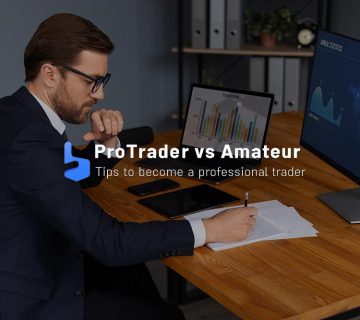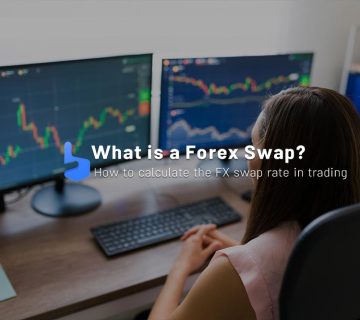What you are about to read:
Forex involves buying and selling various currencies to make a profit. This market is highly volatile, offering both lucrative opportunities and associated risks. Therefore, it is crucial for traders to understand the concept of “stop out level” to effectively manage their risks as they decide to learn forex and start trading. In this article, Brokerland explains the importance and concept of stop out in Forex trading. Stay with us.
Stop Out Level in Forex
Stop out level refers to the point at which a trader’s account is automatically closed by the broker due to insufficient margin. This occurs when the trader’s margin falls below a certain threshold, usually around 20 percent.
The margin level is the equity trader’s ratio to the required margin, expressed as a percentage. In previous articles, we have discussed margin and equity in detail.
For example, suppose a trader has an account balance of $10,000 and is trading a currency pair with a required margin of 1 percent. This means the trader needs to maintain a $100 margin to keep their positions open.
If the trader’s account equity drops to $1,000, their margin level will be 10 percent, which is below the 20 percent stop out threshold set by the broker. At this point, the forex broker automatically closes the trader’s positions to prevent further losses.
Stop out in Forex is a crucial concept as it prevents traders from losing more money than they can afford. By setting stop-out levels, brokers can protect both themselves and their clients from excessive losses.
Stop Out vs. Margin Call
It’s important to note that stop out and margin call are not the same. A margin call occurs when a trader’s margin level falls below a certain threshold, usually around 100%, meaning their equity equals or falls below the margin. When a margin call happens, the broker typically requests the trader to deposit additional funds to meet the margin requirements. If the trader fails to meet these obligations, their positions may be closed by the broker.
On the other hand, stop out is the last line of defense against excessive losses and is designed to protect both brokers and traders. A margin call serves as a warning sign that the trader’s margin level has dangerously fallen, and to prevent reaching stop-out, there is a need to deposit additional funds or close positions.
How to prevent it?
Preventing stop out in forex trading involves several strategies that traders can employ to manage their risks and avoid reaching the stop out level. One of the most common strategies is the use of stop-loss orders, which are orders placed at a predetermined price level to limit losses if the market moves against the trader’s position. Stop-loss forex orders can be set below the stop out level, meaning that if the market moves unfavorably, the trader’s trades will automatically close, but before their margin level reaches below the stop-out.
Another strategy involves using proper position sizing. This includes calculating the appropriate trade size or position size for each trade based on the trader’s account balance and risk tolerance. By using an appropriate position size, traders can ensure that they don’t risk more than they can afford to lose in each trade.
Traders can also utilize leverage to manage their risks. Leverage allows traders to control larger positions with less capital. However, as mentioned in the leverage article, it also increases the potential for losses, so traders need to use it wisely and understand the associated risks.
Additionally, traders should be aware that stop out levels can vary between brokers and even among different currency pairs. Some brokers may have higher stop-out levels than others, meaning that traders may be able to accept higher risks with those brokers.
Conclusion
In conclusion, understanding the concept of stop out is vital for forex traders to effectively manage their risks. By setting stop-out levels, brokers can protect both themselves and their clients from excessive losses. Traders can employ various strategies, including stop-loss orders, proper position sizing, and leverage, to manage their risks and avoid reaching the stop out level.
However, it’s crucial for traders to remember that forex trading is a highly volatile market, and there’s always the potential for unexpected market movements that can lead to losses. Traders, with awareness of risks and effective risk management, can increase their chances of success in forex trading.










